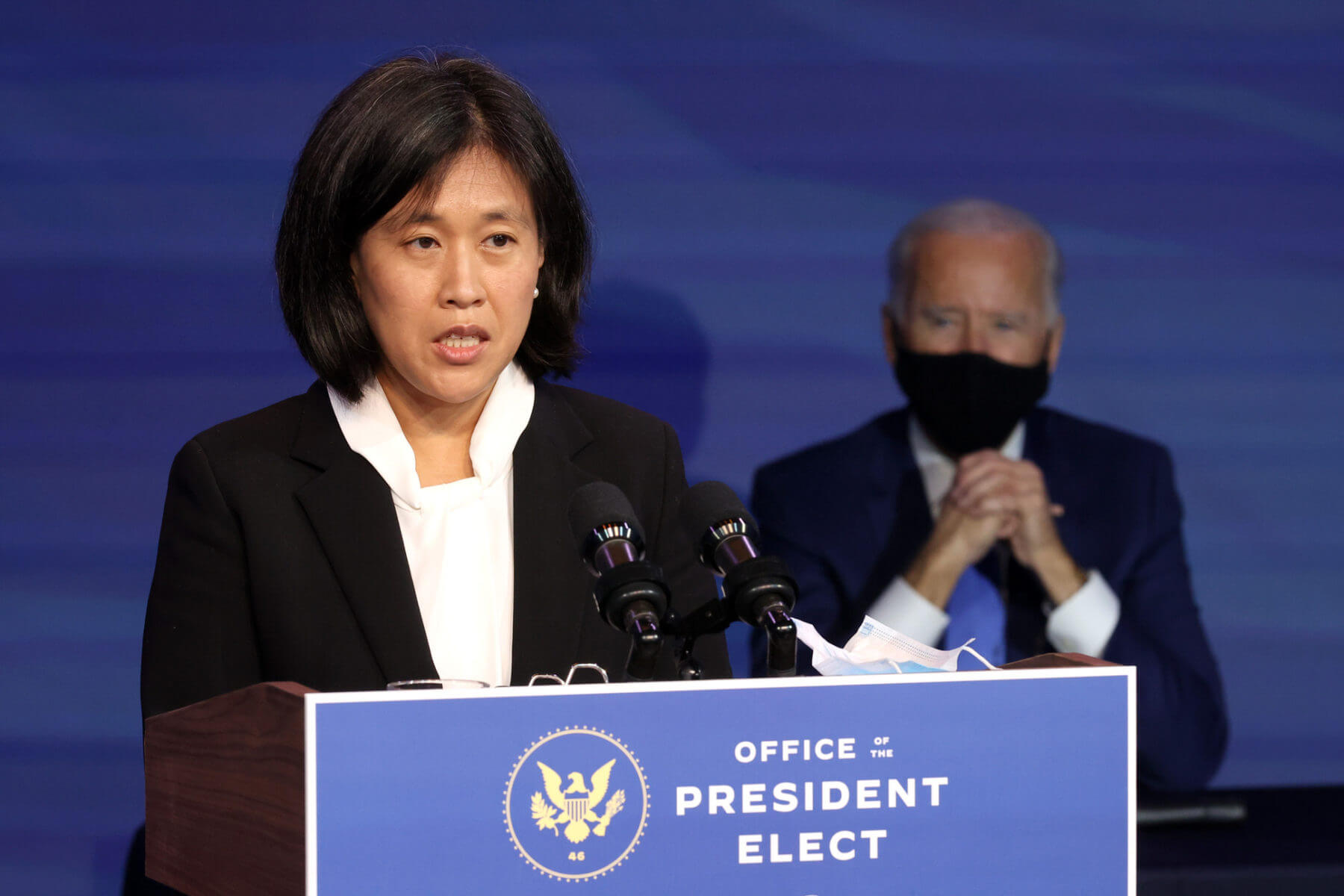The Biden administration on Wednesday expressed support for a highly contested WTO proposal to waive intellectual property (IP) protections for COVID-19 vaccines, arguing that the measure was required to end the pandemic.
The plan, first proposed by India and South Africa, calls for the suspension of patent rights for vaccines already cleared for emergency use to help countries around the world overcome legal barriers preventing them from producing their own COVID-19 vaccines and treatments. Though the United States (US) had previously resisted waiving protections, it explained its change of heart of Wednesday, stressing that responding to the extraordinary global health crisis called for extraordinary measures.
US Trade Representative Katherine Tai said in a statement that America will “actively participate in the text-based negotiations at the WTO” to make this possible. “The administration’s aim is to get as many safe and effective vaccines to as many people as fast as possible. As our vaccine supply for the American people is secured, the administration will continue to ramp up its efforts – working with the private sector and all possible partners – to expand vaccine manufacturing and distribution,” she added. However, Tai also acknowledged that the process could take time given the issue’s complexity and the consensus-based nature of the organisation.
Critics of the waiver argue that such a move would disincentivise pharmaceutical companies from investing in developing medicines and vaccines in future pandemics. While proponents have acknowledged that an IP waiver alone will certainly not end the crisis, they stress that it will help re-energise efforts towards global cooperation to fight the pandemic, which should also focus on higher information sharing and capacity-building.
Experts argue that around 70% of the world’s population needs to be fully vaccinated to turn the tide of the pandemic. This means that more than five billion people need to be vaccinated, which amounts to about ten billion jabs (assuming two doses per person). Though vaccination campaigns have picked up speed in various parts of the world, inoculation is still largely concentrated among high- and upper-middle-income countries. Poorer nations, on the other hand, which host nearly 80% of the world’s people, have so far been able to access less than one-third of the available vaccines.
Given that the world currently has the capacity to produce only 3.5 billion doses in a year, and that developed nations have already secured most of these for their own needs, researchers have argued that unless manufacturing and supply can be distributed more evenly, it will be at least another two years until a significant proportion of people in low- and middle-income countries are vaccinated. With massive resurgences in COVID-19 cases in countries like India in recent weeks, accelerating global vaccine coverage has become all the more important.
Following the US’ announcement, World Health Organisation (WHO) chief Tedros Adhanom Ghebreyesus called the move a “monumental moment” that was a “powerful example of leadership to address global health challenges.” Despite the US’ support, however, it is unclear whether the proposal will get the backing of other world powers, including the European Union (EU), and the United Kingdom (UK). Further discussions on the matter at the WTO are expected in the coming weeks as India and South Africa prepare a revised plan for nations to consider.
US Backs India and South Africa’s COVID-19 Vaccine Patent Waiver Proposal
US Trade Representative Katherine Tai argued that the extraordinary measure was required to end the pandemic.
May 6, 2021

US Trade Representative Katherine Tai SOURCE: CHIP SOMODEVILLA/GETTY IMAGES
